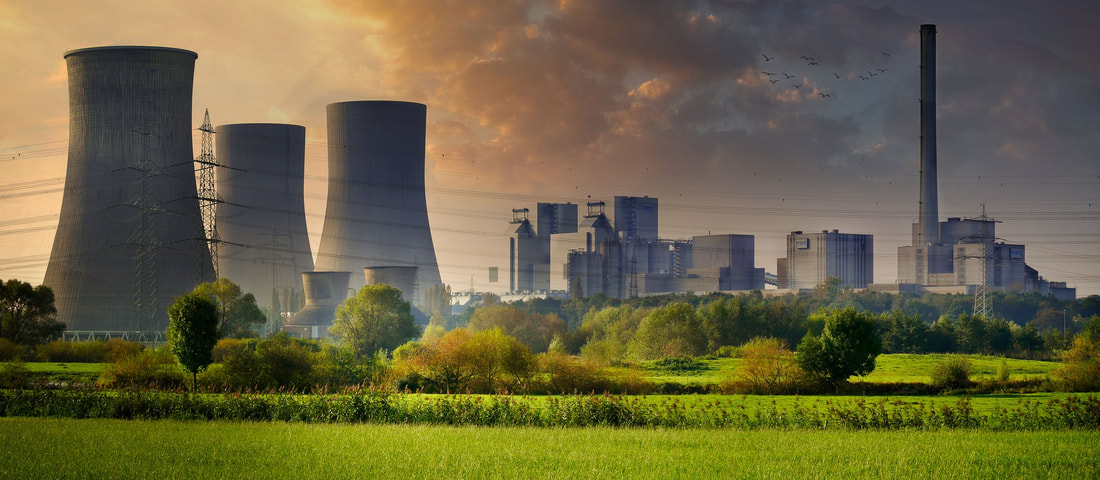As with my last post about Daffodils and William Wordsworth's tribute to these beautiful beings, I have been fascinated by the ideas put forth by Romanticism in Europe. I have been watching documentaries and reading up more about this movement; about how it came about in response to the events of the time as well as how valid they are even till this day.
As a child, I grew-up watching TV, as my parents didn't really set healthy boundaries for my media consumption. When they watched horror movies, I watch them too. I remember covering my eyes with my fingers to soften the blow of my distress, though I would hear everything, from bloodcurdling, suspenseful music to gory mauling sounds and screaming. But I would peek between the spaces of my fingers, to get a 'filtered view' of the scary scenes. My older siblings would then tease me about being scared, which I would flat-out deny, but I was frightened out of my wits. What I needed then was clearly a "No, this is inappropriate for you. You may not watch this film." Anyhow, my exposure to horror films as a 5-year-old did allow me to see Frankenstein, in many of its Hollywood versions, which scared me thoroughly. Later, when I was in my primary school library, I was surprised to find a book, an abridged version for children, written by Mary Shelley. I remember borrowing it to take home to read and I was surprised by how un-horrifying it was. The "monster" who many call Frankenstein but that is not his name; it's the scientist who is Frankenstein. This creation of Dr. Frankenstein has emotions and a sense of justice, enough so that he chides Dr. Frankenstein for creating him so hideous that no human will love him, not even his own creator, and that Dr. Frankenstein had the responsibility as his creator to help him dispel his loneliness by creating a companion for him. If you haven't read Mary Shelley's Frankenstein, which was first published in 1818, when she was 21, you should. It is more than just a horror novel.
I have only recently become aware of Mary Shelley's life. Her mother was Mary Wollstonecraft, a famous feminist philosopher of the 18th century, best known for "A Vindication of the Rights of Woman" written in 1792, which I had to read for a class in university. Mary Shelley's mother died of birth complications, as such she was brought up and educated by her father, William Godwin, a political philosopher, one of the early advocates of a form of anarchy. Her husband was Percy Bysshe Shelley, another famous British romantic poet of the time. Returning to the story of Frankenstein and how Mary Shelley developed it; it was in good old Switzerland, in a villa on Lake Geneva. In the company of other Romantic poets and literary greats, Mary Shelley goes to bed after some discussions of the events of the time, of science, of electricity and wakes from a nightmare of this creature created by man, without regard for the laws of Nature.
"Frankenstein is a prophesy that science might be misused by those who wish to alter or tamper with nature. The novel's frightful horror is the dark reflection of the Romantic sublime. Its message was simple but powerful. Respect and revere Nature for it has the power to destroy you. Science alone is not enough. It is a warning many people are repeating to this day." (Peter Ackroyd, The Romantics - Nature BBC Documentary)
Just because we are able to create something, it does not mean we should. Hence, the necessity of ethics in science and medicine. Science used to be as defined by the Oxford dictionary "the intellectual and practical activity encompassing the systematic study of the structure and behaviour of the physical and natural world through observation and experiment." However, many in science have gone far beyond the boundaries of "the physical and natural world" as well as over-exceeded them, with little regard for the consequences of their inventions. Take nuclear fission, when German scientists discovered it in the early 1930s, they may have been unaware how this discovery would be later used to create the atomic bomb or how it would be used to create energy, that would leave behind thousands of years of radioactive garbage, which we still do not know how to dispose of, and some very sick people struggling with cancer from radiation due to nuclear power plant malfunctions. The climate crisis, polluted environments, the nuclear arms race...the list continues are what we humans have done in the name of science and progress to Nature. We are in this state of "emergency" because we chose to not listen or respect the boundaries given to us by Nature. Maybe it is time to stop and listen to the voices of reason, such as from the Romantics of 200 years ago, that we return to listening and being with Nature.
Image Power Plant by fietzfotos on Pixabay


 RSS Feed
RSS Feed